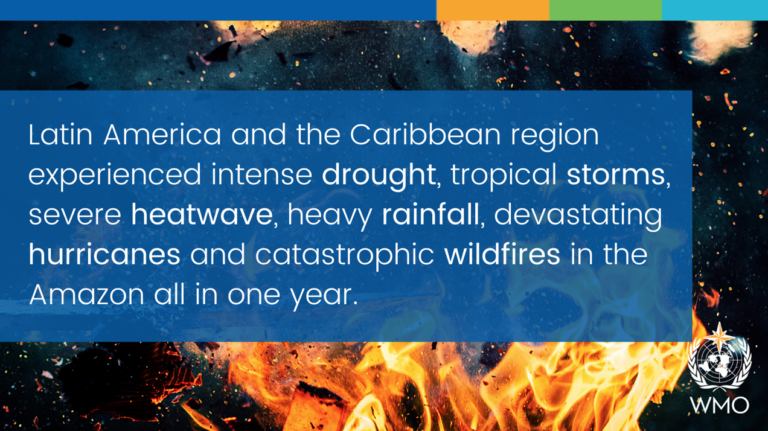The “State of the Climate in Latin America and the Caribbean 2020” report by the World Meteorological Organization (WMO) highlights the severe impacts of climate change and extreme weather on health, food, water, energy security, and the environment across the region. The report emphasizes increased temperatures, changing precipitation patterns, and significant droughts, alongside ocean acidification and heat threatening marine and coastal ecosystems, especially in Small Island Developing States.
The region has experienced catastrophic events, including the devastation from Hurricanes Eta and Iota, which affected over 8 million people and exacerbated food insecurity amid the ongoing COVID-19 pandemic. Latin America holds 57% of the world’s primary forests, vital carbon sinks now threatened by deforestation and increased wildfires—2020 saw record high fire activity, particularly in the Amazon and Pantanal regions.
With sea levels rising faster than the global average and marine temperatures at record highs, the report underscores the need for enhanced early warning systems and robust climate hazard monitoring. It calls for greater political commitment and financial support to improve adaptation strategies in managing climate risks. The findings stress that urgent action is necessary to mitigate and adapt to the continual challenges presented by climate change in Latin America and the Caribbean.
Source link


